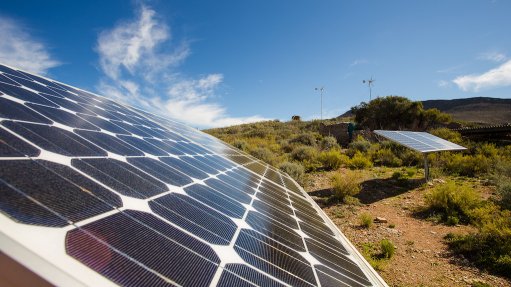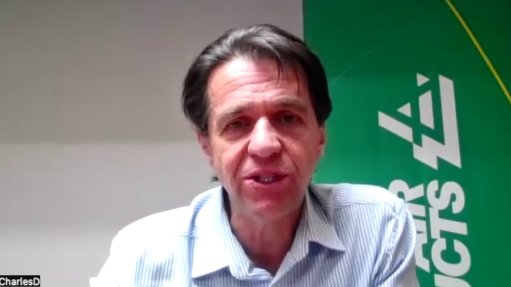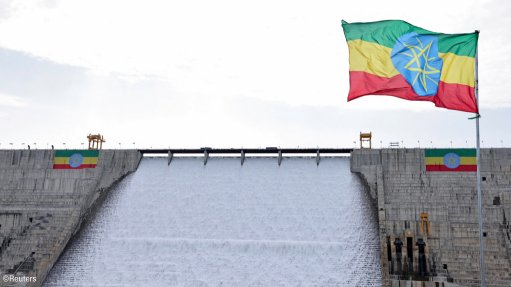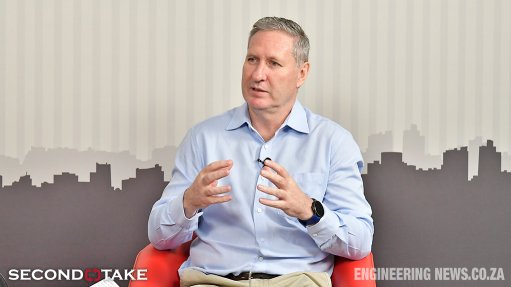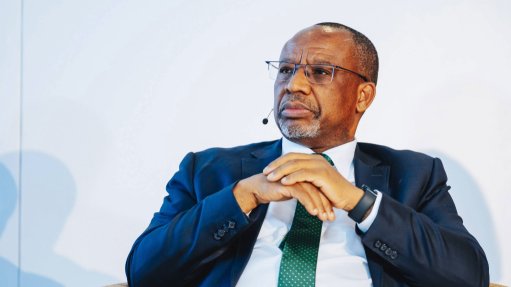Renewable energy’s role in rebuilding our economy
This article has been supplied.
The world has seen significant progress being made toward lowering the cost of solar and wind generation, with new low and zero-carbon generation solutions being deployed every day.
While much has been said about how renewables will help to bolster our economy, it is not the silver bullet that will address all our developmental challenges. This is the view of Niveshen Govender, Chief Operations Officer at the South African Photovoltaic Industry Association (SAPVIA), which is the association partner of the upcoming virtual Solar Power Africa event, who says that it will rather act as a catalyst to support businesses and entire industries with the supply of cost-effective clean energy.
Based on current projects, clean energy could make up 40% of world's power base by 2050.
Govender explains that in President Cyril Ramaphosa’s recent address on his Economic Reconstruction and Recovery Plan, he outlined interventions to ensure that South Africa rapidly expands its energy generation capacity. “One of the key components of his plan revolves around the role that renewable energy will play in rebuilding the economy.”
Detailing the approach, Ramaphosa committed to finalising the IPP agreements to connect over 2,000 MW of additional capacity from existing projects by June 2021, as part of a medium-term goal of bringing around 11,800 MW of new generation capacity into the system by 2022.
But it’s not just about generating more energy, one of the biggest challenges that South Africa faces is grid reliability. The continuous bouts of loadshedding have wreaked havoc on business. Acknowledging this issue, Ramaphosa said that the current regulatory framework will be adapted to facilitate new generation projects while protecting the integrity of the national grid. More importantly, it was noted that applications for own-use generation projects are being fast-tracked.
Investments into renewable energy have seen extraordinary growth over the past decade, with nearly R 5 trillion being invested globally in renewable energy each year. This has seen extraordinary growth in wind and solar energy in the past decade, with their average price dropping 73% and 22% respectively. In the car manufacturing industry, companies investing in batteries has seen their price decrease 80%, with a further 60% reduction predicted this decade. This investment is seeing increased growth in the private sector in particular.
While solar and other renewables may only be a small part of the current total energy supply in economies, both the residential and commercial sectors are fast adapting to integrating renewable energy into the mix. In the US, for example, Google purchased 1,600 megawatts from 18 different providers in 2019 – one of the largest acquisitions at the time. Locally, large businesses are doing the same – with Anheuser-Busch InBev connecting its breweries in South Africa to 8.7 MW DC of distributed solar energy it procured through power purchase agreements (PPAs) with local PV systems operator SOLA Group.
In the industrial sector for example, the United Nations Industrial Development Organisation (UNIDO) points out that approximately three quarters of the energy used in the industrial sector is related to the production of energy-intensive commodities such as ferrous and non-ferrous metals, chemicals and petrochemicals, non-metallic mineral materials, and pulp and paper. With energy constituting one of the highest costs in overall production, companies are continuously looking at ways to drive these costs down – something that renewable energy sources provide a solution to.
Businesses are seeing the value of embedded electricity solutions for their supply chains, adds Govender. “Apart from addressing energy shortfalls from national energy providers like Eskom, according to research by Deloitte, using renewable energy can help businesses across their supply chains by decreasing long-term costs, mitigating risk, driving new revenue, enhancing brand value, and improving employee engagement.”
This is where the renewable energy market, including solar PV, will play its biggest role. Not in being the all in one solution that everyone expects it to be. But rather the catalyst that helps to capacitate local municipalities, towns, business and entire industry sectors – providing a cheaper and more sustainable source of energy that allows them to reinvest, build and ultimately contribute to economic growth in the country.
Greater decentralisation
According to the latest data from the United Nations, 85% of the global population has access to basic electricity services, up from 73% in 1990. While this has largely been through governments’ efforts in extending national grids, there has been a sharp increase in the demand for off-grid decentralized solutions.
Govender says that, unlike the traditional energy economy, renewable energy is a lot more decentralised. “This has a greater economic benefit to developing countries, particularly in Africa, who are able to grow their indigenous low-cost energy sources all while ensuring that the money stays largely in the region. Countries that were once importers of energy may become self-sufficient, even exporting electricity or hydrogen to other markets.”
This aligns with the UN’s Sustainable Development Goals, which require aligning new pools of capital, innovative decentralized distribution models, supportive public policy, and new technology applications.
In rural and remote areas across the continent, the true potential of decentralized electrification solutions is realised – providing more cost efficient and accessible energy where traditional grid infrastructure may not be possible or too costly.
With the right blend of policy and regulatory support, innovation and technical assistance, the African continent can catalyse the private sector players to take to scale, largely through renewable energy.
According to Joshua Low, Managing Director at Messe Frankfurt South Africa – organisers of, Solar Power Africa, these critical issues will be discussed at the five-day virtual event. “As the leading solar and energy storage event in Africa, come of the key issues that will be unpacked will include; enhancing the uptake of solar PV in the private sector, policy frameworks and regulations, identifying Multimode and Microgrid energy storage solutions, as well as looking at innovative renewable solutions for the future, amongst others.”
Run in partnership with the South African Photovoltaic Industry Association (SAPVIA), Solar Power Africa will bring together an extensive alliance of local and internationally renowned industry leaders, stakeholders and experts with the aim of discussing and unpacking strategies that aim to provide greater access to solar power and clean energy solutions on the continent. The virtual event will take place from 16 – 20 November 2020.
For more information on the event, visit www.solarpowerexpo.co.za
Comments
Press Office
Announcements
What's On
Subscribe to improve your user experience...
Option 1 (equivalent of R125 a month):
Receive a weekly copy of Creamer Media's Engineering News & Mining Weekly magazine
(print copy for those in South Africa and e-magazine for those outside of South Africa)
Receive daily email newsletters
Access to full search results
Access archive of magazine back copies
Access to Projects in Progress
Access to ONE Research Report of your choice in PDF format
Option 2 (equivalent of R375 a month):
All benefits from Option 1
PLUS
Access to Creamer Media's Research Channel Africa for ALL Research Reports, in PDF format, on various industrial and mining sectors
including Electricity; Water; Energy Transition; Hydrogen; Roads, Rail and Ports; Coal; Gold; Platinum; Battery Metals; etc.
Already a subscriber?
Forgotten your password?
Receive weekly copy of Creamer Media's Engineering News & Mining Weekly magazine (print copy for those in South Africa and e-magazine for those outside of South Africa)
➕
Recieve daily email newsletters
➕
Access to full search results
➕
Access archive of magazine back copies
➕
Access to Projects in Progress
➕
Access to ONE Research Report of your choice in PDF format
RESEARCH CHANNEL AFRICA
R4500 (equivalent of R375 a month)
SUBSCRIBEAll benefits from Option 1
➕
Access to Creamer Media's Research Channel Africa for ALL Research Reports on various industrial and mining sectors, in PDF format, including on:
Electricity
➕
Water
➕
Energy Transition
➕
Hydrogen
➕
Roads, Rail and Ports
➕
Coal
➕
Gold
➕
Platinum
➕
Battery Metals
➕
etc.
Receive all benefits from Option 1 or Option 2 delivered to numerous people at your company
➕
Multiple User names and Passwords for simultaneous log-ins
➕
Intranet integration access to all in your organisation






